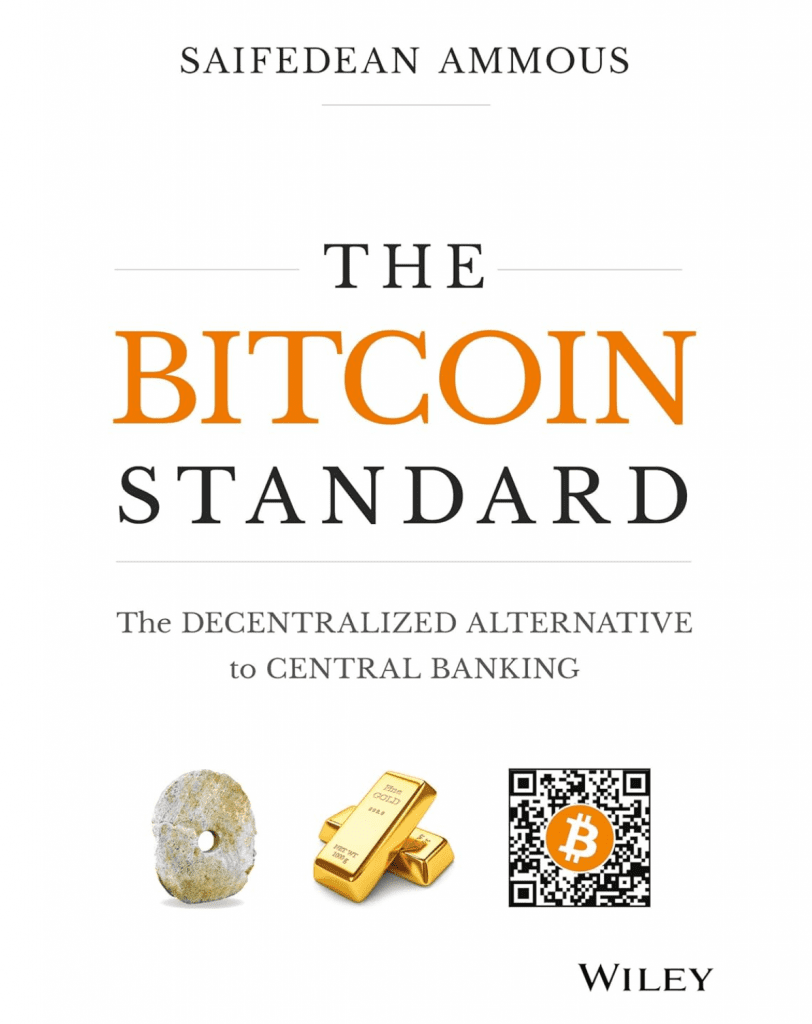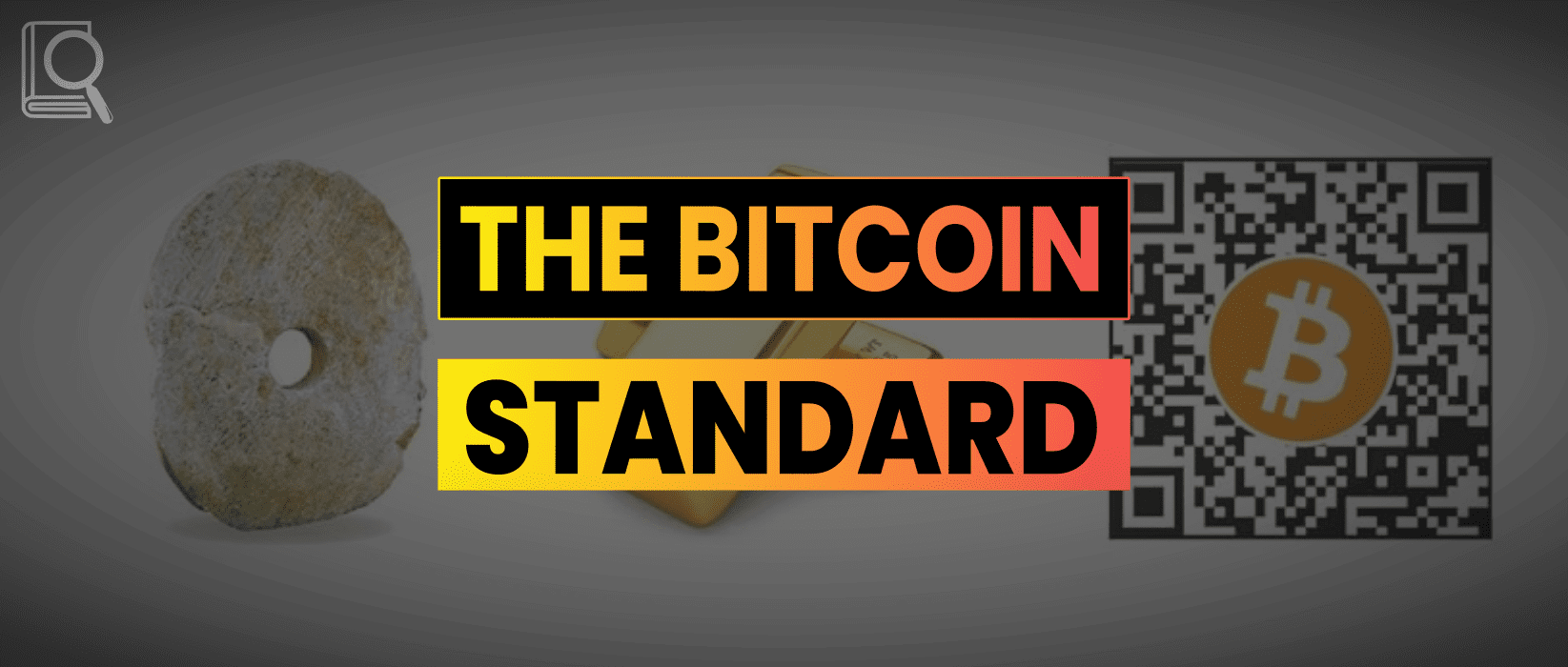The Bitcoin Standard presents a sweeping, interdisciplinary case for why Bitcoin is not merely a technological innovation or speculative asset, but a necessary evolution in the history of money.
Saifedean Ammous argues that sound money money that is hard to produce and politically neutral is essential to the advancement of civilization. In his view, Bitcoin represents a return to a hard monetary standard akin to gold, but one that is optimized for the digital age.
Ammous, a Lebanese American economist and former professor at the Lebanese American University, brings a macroeconomic and Austrian School perspective to his analysis. He holds a PhD in Sustainable Development from Columbia University, and his work is marked by a deep skepticism of central banking and inflationary monetary policy. His background in economics, energy, and monetary history informs his thesis that modern fiat systems are unsustainable and damaging to long term capital formation, societal stability, and individual freedom.

The book is divided into three main sections: the history and function of money, the problems of fiat currency and central banking, and the emergence of Bitcoin as a potential solution. It aims to reframe Bitcoin not as a tool for short term trading or anonymity, but as a revolutionary form of monetary technology that can restore long term economic rationality.
The Nature and Evolution of Money
Ammous begins by establishing a fundamental understanding of money’s role in human cooperation and economic coordination. Money, he argues, is not a creation of the state but an emergent phenomenon chosen organically as the most salable good in a society.
He outlines the historical progression of money from barter to commodity money (like cattle, salt, seashells), to precious metals, and ultimately to fiat currencies. Throughout history, societies naturally gravitated toward forms of money that best preserved value over time a property he calls “hardness.” The hardness of money is determined by its stock to flow ratio: the amount of existing supply (stock) relative to the new supply produced annually (flow). Gold, with a high stock to flow ratio, held the position of the most reliable store of value until the 20th century.
Sound Money vs. Easy Money
The central distinction in Ammous’s framework is between sound money, which is costly to produce and resists arbitrary inflation, and easy money, which can be created at will by central authorities. Sound money imposes fiscal discipline, encourages saving, and allows for accurate economic calculation over time. Easy money, in contrast, leads to inflation, debt driven consumption, asset bubbles, and misallocation of capital.
Historically, civilizations on a sound monetary standard such as the gold standard experienced more stable prices, lower time preference (the tendency to value the future), and increased capital accumulation. The abandonment of gold in 1914 and especially after 1971, when President Nixon ended the U.S. dollar’s convertibility into gold, marks for Ammous the beginning of a worldwide experiment in unsound fiat currency.
The Role of Time Preference
A key Austrian economic concept woven throughout the book is time preference-the extent to which individuals value present consumption over future consumption. Ammous argues that fiat money systems raise time preference by eroding savings through inflation, which in turn leads to short termism, hedonism, and unsustainable social policies.
Low time preference societies, enabled by hard money, tend to invest in long term capital projects, family structures, and cultural achievements. High time preference societies, under inflationary regimes, exhibit degradation in education, architecture, health, and moral values.
Monetary Policy, Central Banking, and Economic Distortion
Ammous is highly critical of modern central banking, particularly the Federal Reserve. He contends that monetary policy is inherently flawed because it attempts to manage complex economies through politically driven interventions. Artificially low interest rates, quantitative easing, and government bailouts distort price signals, encourage moral hazard, and redistribute wealth toward the politically connected.
He cites historical examples like the Weimar Republic and Zimbabwe to illustrate the destructive potential of hyperinflation. Even milder forms of inflation, according to Ammous, undermine productive investment and incentivize speculative behavior.
The Economics of Bitcoin
Bitcoin, Ammous argues, is the first implementation of digital sound money. Its core innovation is its resistance to inflation and censorship, achieved through a fixed supply cap of 21 million coins, enforced by a decentralized network of nodes and miners.
Bitcoin’s proof of work consensus algorithm ensures that no central authority can alter its monetary policy. Its mining process, akin to gold extraction, converts energy into digital scarcity. Bitcoin also inherits many desirable monetary properties: divisibility, portability, durability, and verifiability.
Ammous compares Bitcoin’s stock to flow ratio to that of gold, noting that as Bitcoin’s block rewards halve approximately every four years, its scarcity surpasses that of gold. By design, Bitcoin is disinflationary, with issuance declining over time until it reaches zero.
Bitcoin vs. Altcoins and Blockchain Hype
Ammous dismisses most alternative cryptocurrencies (altcoins) as unsound due to their lack of credible monetary policy and centralization. He critiques the broader blockchain narrative, especially in enterprise applications, as largely misguided. According to him, blockchain is only useful when combined with decentralization and immutability features that most blockchain projects abandon for efficiency.
He warns against confusion between Bitcoin and other digital assets, emphasizing that Bitcoin’s value proposition lies not in faster transactions or programmability, but in providing a decentralized, immutable, and scarce form of money.
Bitcoin and Civilization
In the final chapters, Ammous speculates on the long term implications of Bitcoin adoption. A return to a hard money standard via Bitcoin could, in his view, restore low time preference behavior, encourage savings, reduce reliance on government debt, and enable organic, bottom up economic coordination.
He draws parallels between gold based societies and a hypothetical Bitcoin based civilization, arguing that both would prioritise long term investment, fiscal discipline, and individual sovereignty.
Takeaways
- Money emerges organically, not by government decree. The best forms of money historically were chosen through voluntary exchange, not central planning.
- The key feature of sound money is scarcity. Bitcoin mimics and exceeds gold in hardness due to its verifiable, algorithmically enforced supply cap.
- Fiat currency systems promote high time preference. Inflation and easy money incentivize consumption, short termism, and unsustainable behavior.
- Central banking distorts price signals and capital allocation. Manipulated interest rates lead to malinvestment, asset bubbles, and financial fragility.
- Bitcoin’s design aligns with sound economic principles. Its decentralized architecture, fixed supply, and resistance to control make it a viable store of value.
- Most cryptocurrencies and blockchain applications lack monetary soundness. Without credible scarcity or decentralization, they cannot replicate Bitcoin’s properties.
- Economic prosperity stems from stable, predictable money. Societies flourish when they can engage in long term planning, savings, and investment.
- Bitcoin may re enable bottom up fiscal discipline. If adopted widely, Bitcoin could constrain state spending, reduce public debt, and restore individual sovereignty over money.
- The proof of work mechanism is not wasteful it is essential. It secures the Bitcoin network by anchoring value to physical energy and cost.
- Bitcoin is not a tool for fast payments, but for preserving wealth. Its primary use case is as a global, digital reserve asset not as a daily currency.
- Inflation is not a necessity it is a political choice. Ammous challenges the assumption that controlled inflation is beneficial, showing how it undermines economic and cultural stability.
- Bitcoin represents a peaceful, voluntary alternative to fiat systems. It offers individuals an exit from centralized monetary control without requiring political revolution.
The Bitcoin Standard is not merely a book about Bitcoin; it is a thesis on the importance of sound money in shaping human civilization. Through historical analysis and economic reasoning, Ammous presents Bitcoin as a timely solution to the moral and structural failings of fiat currency. Readers seeking to understand Bitcoin’s value proposition beyond price speculation will find in this book a robust intellectual framework grounded in monetary history, Austrian economics, and moral philosophy.
https://www.amazon.co.uk/Bitcoin-Standard-Decentralized-Alternative-Central/dp/B07D81GN76



